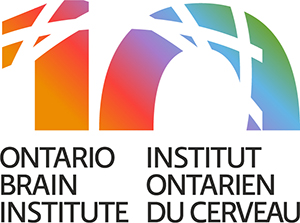OBI's Data Releases Promise to Accelerate Discovery in Brain Health
Clinical data from over 5500 participants are ready to be mined by researchers for insights into brain health and disease
TORONTO, May 13, 2021 /CNW/ - The Ontario Brain Institute (OBI) announced the release of its first clinical data sets to promote open science and accelerate research in brain health through Brain-CODE, OBI's neuroinformatics platform. OBI's approach to data sharing offers the research community an opportunity to take advantage of clean, curated data to better understand brain disorders and identify new treatment options that would otherwise take years of work and resources.
Gathering large, well-curated datasets is a highly specialized, resource intensive process, but it has a big pay-off. By providing these assets to the international research community OBI aims to let researchers get right to the work. Using these data, researchers can delve into some of the most pressing questions and challenges that will ultimately improve quality of life for people living with brain disorders.
Designated a Privacy by Design ambassador by the Information and Privacy Commissioner of Ontario, Brain-CODE's safe and secure platform will make it easier for researchers, clinicians, and industry partners to collaborate with national and international research community in speeding up discovery.
"Data sharing fosters scientific discoveries by enabling the aggregation of multiple, disparate datasets as well as opening the process of gaining insights from the data to scientists not involved in the initial data gathering. Such democratization of data and science will lead to more robust and trustworthy results and conclusions", says Dr. Jason Lerch, Director, Preclinical Imaging, Wellcome Centre for Integrative Neuroimaging, University of Oxford and POND Investigator.
The first sets of clinical data were collected for research studies led by OBI's neurodevelopmental disorders (like autism) program (POND) and the Post-Concussive Problems In Pediatrics (5P) study that involved researchers from OBI's concussion research program (CONNECT). This set includes clinical data from over 5500 participants and later this year four more datasets including depression and neurodegenerative diseases (like Alzheimer's) will follow.
Currently, Brain-CODE has data from more than 20,000 participants across its six research programs: epilepsy, cerebral palsy, neurodegenerative diseases, neurodevelopmental disorders, depression and concussion. Brain-CODE's existing open data sets have been downloaded over 100 times during this past year alone with requests received from several countries including China, USA, Germany, Mexico and Australia.
"Science today is increasingly interdisciplinary, and researchers benefit enormously from having access to data and reliable information from various scientific fields," said Dr. Mona Nemer, Canada's Chief Science Advisor. "I am pleased to see that OBI has taken the lead on enabling open and safe sharing of research using an approach that reflects the values of transparency, inclusiveness and collaboration."
"The Ontario government is committed to supporting and recognizing scientific advances and innovations in the healthcare sector by Ontario's businesses and organizations to better the treatment and care of Ontarians," said Ross Romano, Minister of Colleges and Universities. "By sharing their first clinical data sets with the research community to better understand brain disorders and find new treatment options for those living with brain disorders, OBI continues to put Ontario on the map for its research and innovation in the brain health and healthcare sectors. OBI continues to develop ground-breaking research and 'Ontario Made' innovations and technologies that advance new discoveries and innovations that better the health and wellbeing of those living with brain disorders in our province."
"Improving brain health is a lofty goal, but by bringing the entire community together, OBI aims to unite us all under one banner to serve those in need," says Dr. Mikkelsen, President & Scientific Director, OBI. "Through the collaborative efforts of Ontario's community, we are breaking down barriers, encouraging a 'Team Science' approach to health research and most importantly honouring the time invested by our participants by reusing and recycling their data to help the generations to come."
If you wish to learn more about Brain-CODE or access the data releases, click here.
About Ontario Brain Institute:
The Ontario Brain Institute is a not-for-profit organization that accelerates discovery and innovation, benefiting both patients and the economy. Our collaborative 'team science' approach promotes brain research, commercialization and care by connecting researchers, clinicians, industry, patients, and their advocates to improve the lives of those living with brain disorders. Welcome to Brain Central. Visit www.braininstitute.ca for more information. Follow us on Twitter (@OntarioBrain). Funding provided, in part by, the Government of Ontario.
About Brain-CODE:
Brain-CODE is OBI's state-of-the-art neuroinformatics platform where data streams from OBI's six research programs and from institutions across Canada. Brain-CODE which is designed to store, manage and facilitate the analysis of data. OBI's Brain-CODE is a "shared brain" for researchers in Ontario and beyond. Please visit www.braincode.ca
SOURCE Ontario Brain Institute

Fatima Khan, Senior Lead - Communications, 437-999-6370, [email protected]; Allison Garber, Consultant, Ontario Brain Institute, [email protected], 902 221 5254

Share this article